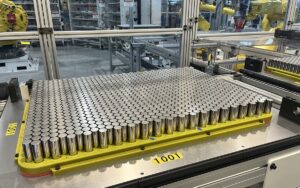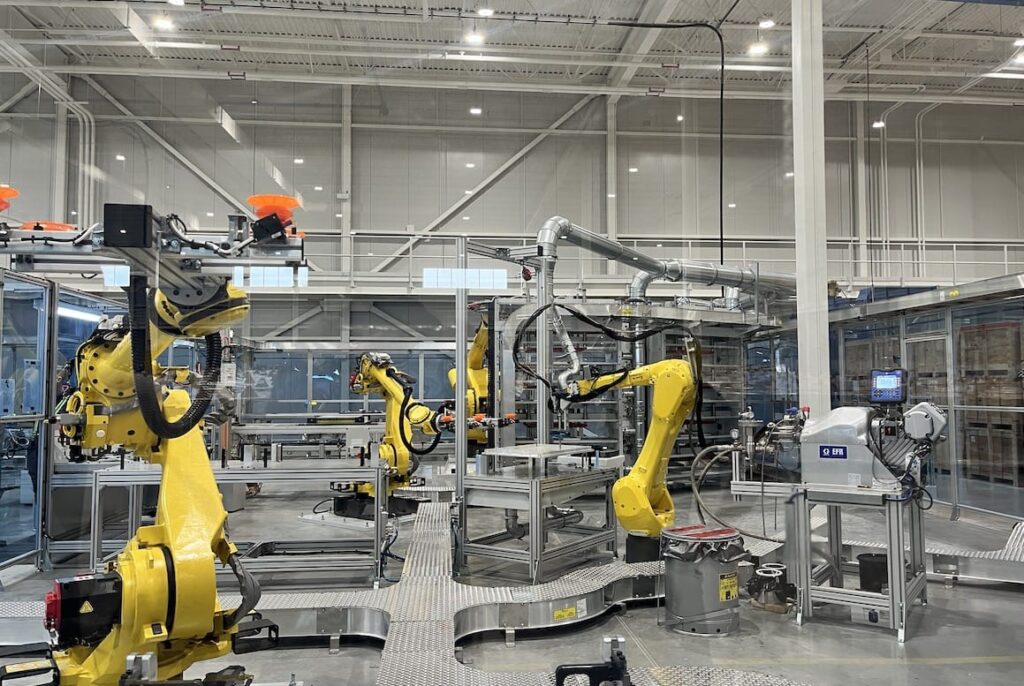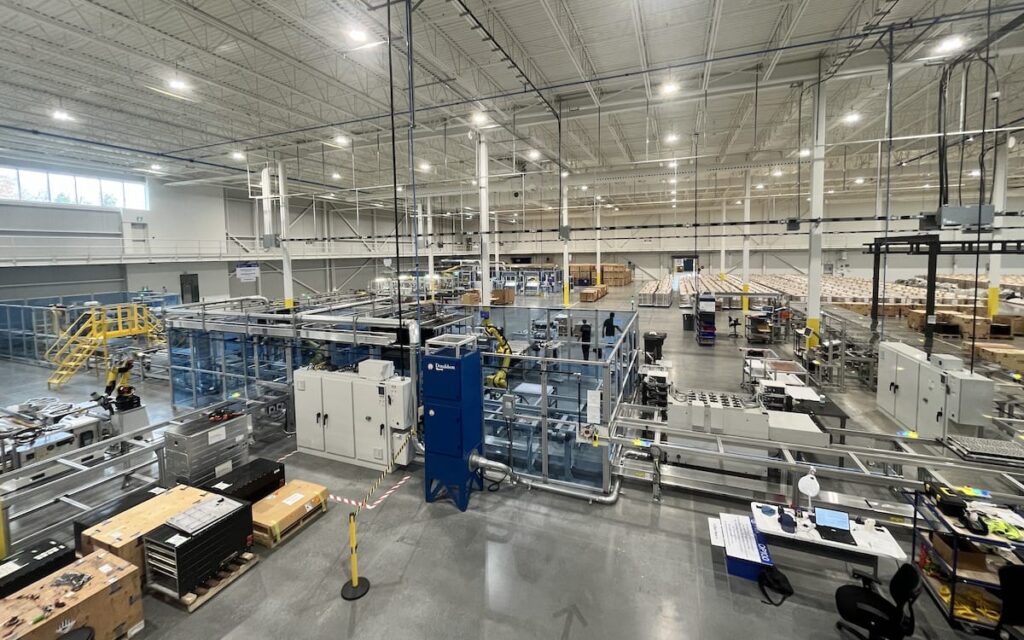As Lion Electric faces a major financial crossroads, Electric Autonomy takes a tour around its battery plant where the company hopes to make battery manufacturing the cornerstone of its future

Lion Electric is becoming a battery pack supplier as it navigates choppy industry waters. Photo: Electric Autonomy
As Lion Electric faces a major financial crossroads, Electric Autonomy takes a tour around its battery plant where the company hopes to make battery manufacturing the cornerstone of its future
Every 11 minutes a brand new lithium-ion battery pack rolls off the assembly line at the Lion Electric gigafactory on the outskirts of Montreal.
The 175,000-square-foot facility, nestled in the YMX International Aerocity of Mirabel, echoes with the sharp screeches of automated machinery.
Lion’s battery pack assembly factory is more than a place where batteries are made. It represents the company’s new strategy to stay competitive in an increasingly challenging EV industry: becoming an EV battery supplier.
“We’re very proud of our factory,” says Patrick Gervais, vice president of truck and commercial development for Lion Electric, as he walks the production floor with Electric Autonomy.
“We’re one of the few fully operating battery manufacturing facilities [in Canada], and…we have far more capacity than our current needs.”
Like many vehicle manufacturers across the industry, Lion is struggling to build EVs at a volume that starts to generate sustainable profit margins.
So, it’s time for a new tactic and Lion is moving quickly to seize its next opportunity.
The company is now not only assembling batteries for its own vehicles, but recently it opened its doors (and order book) to external customers.
“The [companies] that master the batteries are the ones that are going to distinguish themselves in this electrification world,” says Gervais.
“Electrification is not something that’s going to pass by, it’s the new technology for transportation.”
Critical adaptation
Lion has been assembling battery packs in its Mirabel factory since December 2022.

Its decision to become a battery pack industry supplier is, in large part, a response to the challenging operating environment of its auto manufacturing business.
It’s no secret: Lion is struggling with ongoing financial challenges.
This week, the company released a statement indicating it may sell the business or certain assets if it’s unable to meet its loan requirements or pay back its debts to lenders.
Electric Autonomy reached out to Gervais following the tour via email to inquire about the news. He declined to comment beyond what was already publicly announced.
But, earlier this month, Lion reported its third-quarter 2024 results: a net loss of US$33.9 million, with revenues down by US$49.7 million compared to the same quarter in 2023.
Deliveries also dropped sharply, with only 89 vehicles shipped this year — a decrease of 156 compared to the 254 deliveries from the same time last year.
Lion’s financial strain has also led to workforce reductions this year. Over the summer, Lion announced it would cut 30 per cent (300 employees) of its workforce. Most of the layoffs are expected to be temporary, said Lion at the time.
This followed earlier layoffs of about 220 employees in February and April.
Diversifying business operations
To navigate these challenges, Lion Electric is leveraging its battery manufacturing expertise.
Inside its automated plant, Lion assembles both medium-duty and heavy-duty battery packs. For years, Lion kept its batteries strictly for in-house use, focused on integrating its high-performance packs into its own electric buses and trucks.
(Lion has over 2,100 electric trucks and buses on the road in North America and over 52 million driven kilometres.)

But over the past three months, Gervais says Lion has refined its battery manufacturing process faster than expected and is now taking on external customers.
Currently, Lion’s plant operates at a capacity of 1.7 gigawatt hours, enough to power around 2,500 vehicles annually. However, at full capacity, Lion’s Mirabel facility will be able to produce five gigawatt hours of power — enough for 14,500 EVs.
Lion is already in talks with potential clients. In addition to medium- and heavy-duty on-road vehicle customers, the company could supply batteries for trains, boats, off-road vehicles and even large-scale energy storage systems.
“We’ve built modules that are adaptable,” Gervais explains.
If someone needed a battery for a train, for example, Lion could scale up, multiplying modules to create the size and power needed. Or, if it’s a smaller vehicle, they can scale down.
“We needed to adapt,” says Gervais of Lion leaning into a challenging market and pivoting to a new growth area.
“We have a lot of expertise to be shared and to take advantage of…Not a lot of people have that.”






